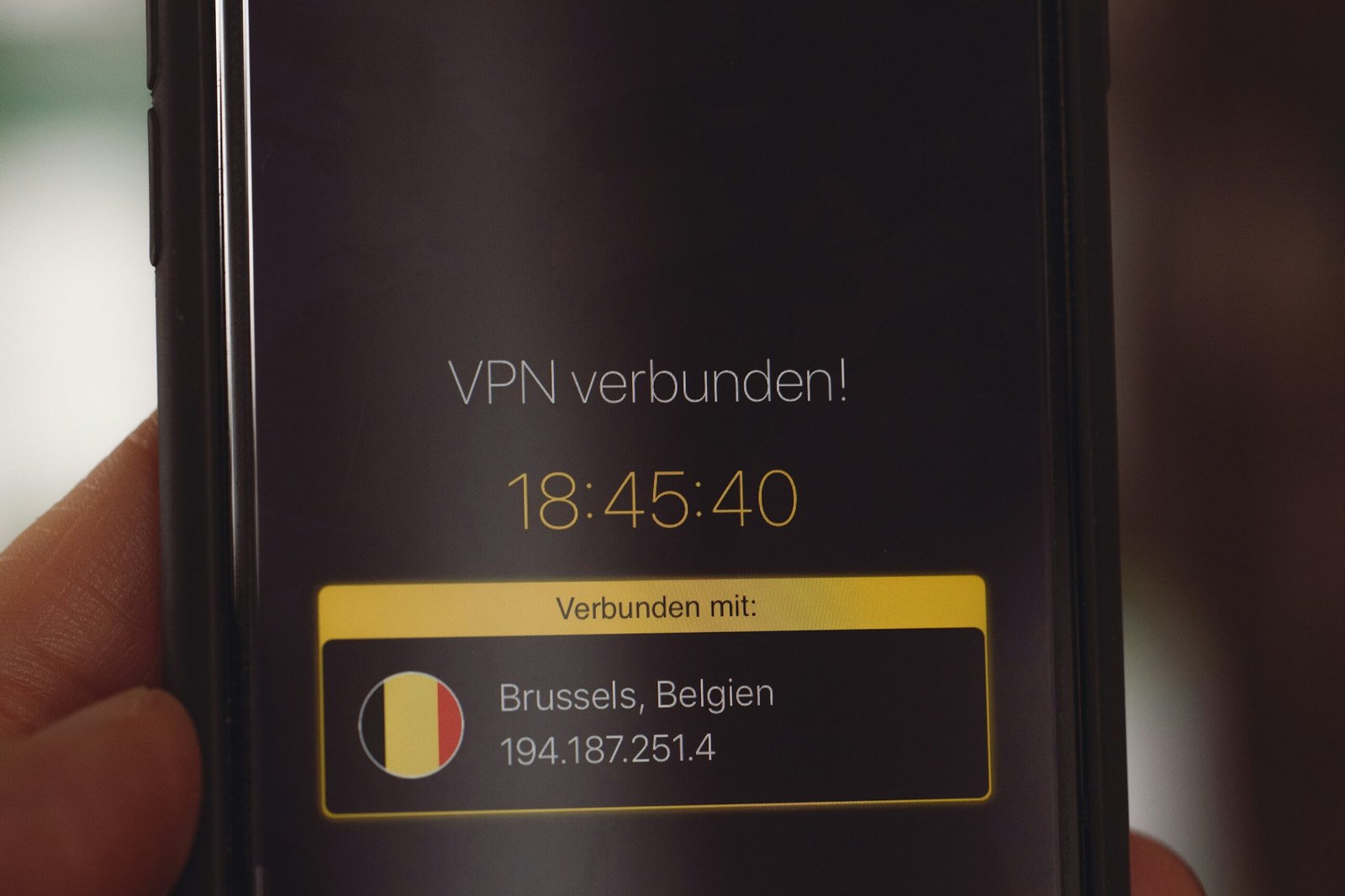Understanding the Darknet
The darknet represents a secluded segment of the internet, distinct from both the surface web and the deep web. While the surface web encompasses all accessible websites simply through standard search engines, the deep web includes vast amounts of data hidden behind passwords or paywalls, such as databases and private corporate sites. The darknet, on the other hand, is a collection of networks that are intentionally hidden and require specific software or configuration to access, most notably through the Tor browser.
Initially developed in the mid-1990s by the United States Naval Research Laboratory, the main goal of the Tor network was to secure government communications. Over time, it transitioned into a tool for privacy-conscious users, creating an environment where anonymity could flourish. The usage of the darknet has broadened to include various communities, ranging from individuals seeking refuge from authoritarian regimes to malicious actors. Common uses of the darknet include the exchange of illicit goods and services, as well as forums discussing topics often deemed taboo on the surface web.
Content on the darknet varies widely. While some sites host information about privacy rights, tools for secure browsing, and whistleblower-support forums, others delve into more illegal activities, such as drug trafficking or hacked data sales. Such diversity adds complexity and creates a dual-edged sword, where users can embrace freedom of speech or risk delving into harmful activities. Without question, the darknet journey involves a level of risk; a reliable VPN provider becomes essential for securing one’s identity during exploration, as it can protect against surveillance and hacking attempts. This hidden layer of the internet warrants cautious navigation, as understanding its structure and purpose can play a significant role in ensuring user safety and enhancing the overall browsing experience.
The Importance of Online Security
As individuals embark on their darknet journey, understanding the importance of online security becomes paramount. The darknet, often synonymous with anonymity and privacy, also harbors significant risks that cannot be overlooked. While many may enter this digital realm for legitimate reasons, others utilize it for illegal activities. This duality creates an environment where users must remain vigilant to protect themselves from potential threats, such as hacking attempts, scams, and various types of malicious software.
One of the main risks associated with accessing the darkweb is the exposure to illegal activities. Users may unintentionally find themselves in situations where they are engaging with illicit content or participating in dubious transactions. This can lead not only to legal troubles but also to the risk of being targeted by law enforcement. Therefore, it is fundamental for individuals to implement robust security measures prior to accessing this hidden part of the internet.
Additionally, hacking threats pose a substantial concern for users who venture into the darknet. Cybercriminals often frequent these spaces, lured by the anonymity it provides, making it easier to execute their nefarious agendas. Shared networks can expose users to attacks aimed at stealing personal data or leveraging one’s device for unlawful purposes. To mitigate these risks, utilizing reliable VPN providers is essential. VPNs not only mask the user’s IP address but also encrypt their internet traffic, facilitating secure browsing on the darknet.
Moreover, employing the Tor browser is crucial for accessing the darkweb through a secure connection. This browser, specifically designed to utilize the Tor network, anonymizes user activity and safeguards privacy. It helps obfuscate the user’s digital footprint, making it significantly harder for potential threats to track or target them. In conclusion, the significance of online security while navigating the darknet cannot be overstated; it is an essential factor for ensuring a safe and secure experience within this complex environment.
Utilizing a VPN for Enhanced Privacy
When embarking on a darknet journey, ensuring robust online security is paramount. One of the most effective tools for achieving this is a Virtual Private Network (VPN). A VPN functions by creating a secure tunnel between your device and the internet, effectively encrypting your online activities. This feature is vital for users accessing the darkweb, as it provides an additional layer of security that can help protect sensitive information from prying eyes.
The primary benefits of using a VPN while exploring the darknet include the masking of IP addresses and safeguarding personal data. By concealing your unique IP address, VPNs allow you to browse anonymously, making it significantly more challenging for third parties, including hackers and surveillance agencies, to trace your online actions. Enhanced privacy and secure browsing are essential when navigating the potential risks associated with the darkweb.
When selecting VPN providers for darknet access, certain critical features should be evaluated. Opt for a VPN that offers strong encryption protocols, such as OpenVPN or WireGuard, to guarantee data security. Additionally, a no-logs policy is crucial; it ensures that your online activities are not recorded or stored by the VPN service, further protecting your privacy. Look for providers that have a large network of servers, as this allows for greater flexibility and faster connections, which is particularly beneficial when using the Tor browser to access the darkweb.
Moreover, high-speed performance is important, especially if you intend to engage in activities that demand significant bandwidth. Compatibility across various platforms, including desktop and mobile devices, can enhance your secure browsing experience. By choosing the right VPN providers, users can significantly mitigate risks and enjoy safer interaction with the darknet, allowing for a more secure and private online landscape.
Choosing the Right VPN Provider
When embarking on your darknet journey, selecting the appropriate VPN provider is crucial for ensuring a secure browsing experience. A Virtual Private Network (VPN) encrypts your internet connection, safeguarding your data and anonymity while you navigate the darkweb. With numerous options available, understanding the key features and performance metrics can help you make an informed decision.
First, consider the no-log policy of each VPN provider. A solid no-log policy guarantees that your online activities remain private, as this means the provider does not keep records of your data or browsing history. This feature is particularly significant for users accessing the darknet, where anonymity is paramount. Providers such as ExpressVPN and NordVPN are renowned for their strict no-log practices, providing peace of mind as you explore sensitive online territory.
Another essential factor to assess is the performance of the VPN. Speed is vital when using the Tor browser to access the dark web, as a sluggish connection could hinder your ability to navigate effectively. Look for VPNs that offer high-speed servers and consistent performance. User reviews can also provide insights into real-world experiences, helping you gauge the reliability of a service. Services like Surfshark and CyberGhost have garnered praise for their robust performance across various locations.
Furthermore, consider multi-device support to ensure that your security remains intact across all your devices. Many VPN providers allow simultaneous connections, enabling users to secure their smartphones, tablets, and computers. This capacity is beneficial for users who may switch devices while accessing the darkweb.
Ultimately, choosing the right VPN provider is a foundational step towards secure browsing on the darknet. By prioritizing no-log policies, evaluating performance, and ensuring device compatibility, you can confidently navigate the complexities of dark web exploration.
Introduction to the Tor Browser
The Tor Browser serves as a crucial gateway to the darknet, designed to facilitate secure browsing while ensuring user anonymity on the internet. With privacy concerns at the forefront of digital navigation, the Tor Browser employs an advanced method known as onion routing. This technology continually encrypts your internet traffic and routes it through a series of randomly selected servers, also known as nodes. By masking the user’s original location and IP address, it allows for a secure journey into the darkweb without revealing one’s identity.
The process begins with the user connecting to the Tor network. Once initiated, the user’s internet requests are layered in encryption, resembling an onion, which is why it is referred to as onion routing. Each layer of encryption is stripped away as the data travels through various servers, making it exceedingly difficult for anyone to trace the origin of the request. This mechanism not only protects the user’s browsing habits but also helps in circumventing censorship that may exist in certain regions of the world.
To get started, users need to download and install the Tor Browser, which is available on multiple operating systems including Windows, macOS, and Linux. It is essential to ensure that you are obtaining the software from the official Tor Project website to avoid potential security vulnerabilities. During installation, users should pay close attention to the security settings, opting for higher levels of security that disable potentially risky features such as JavaScript and certain browser plugins. This safeguards against possible exploits that could compromise anonymity while browsing the darknet. By understanding the functionality of the Tor Browser and implementing these foundational practices, users can significantly bolster their security and privacy in the often unpredictable landscape of the darkweb.
Setting Up Tor Safely
Accessing the darknet requires a careful approach to ensure a safe and secure browsing experience. The foundation of this process begins with the installation of the Tor browser, which is designed to anonymize your web traffic and provide secure access to the darkweb. To start your darknet journey, it is crucial to download the Tor browser exclusively from the official Tor Project website. This practice minimizes the risks associated with malicious software that may compromise your security.
Once the Tor browser is downloaded and installed, your next step involves properly configuring its privacy settings. Go to the settings menu and ensure that your browser is set to the highest privacy and security levels. It is advisable to disable any unnecessary features that may expose your identity or browsing habits. For instance, disabling JavaScript can significantly enhance your security, as many exploits target vulnerabilities within JavaScript applications. Additionally, consider using a reputable VPN provider to further obfuscate your IP address when accessing the darknet. This extra layer of security can be critical, especially in environments where government surveillance is prevalent.
As you begin your exploration of the darkweb, it is important to be aware of problematic sites that may compromise your safety. Stick to well-known and trusted websites that have positive reputations within the community. Many forums and guides exist that provide lists of reliable darkweb sites, making it easier to navigate without falling victim to scams. Remember to regularly update your Tor browser, as each update may contain improvements and security patches that help protect your browsing sessions. By following these practical steps, you can ensure that your journey through the darknet remains secure and private, facilitating an experience that is both insightful and safe.
Best Practices for Safe Darknet Browsing
Navigating the darknet requires vigilance and adherence to best practices to ensure a secure browsing experience. Given the myriad of potential threats present in this hidden part of the internet, users should prioritize their safety and anonymity while exploring various sites. One fundamental practice is to avoid clicking on suspicious links that may appear enticing but often lead to malicious sites. These links can compromise user security or lead to data theft.
Recognizing scams is critical in the darknet environment. Users must remain cautious of offers that seem too good to be true, as many scams exploit the anonymity of the darkweb. It is advisable to conduct thorough research before engaging in transactions or sharing personal information with unknown entities. Users should also utilize reputable forums and communities to gather insights and experiences from seasoned darknet explorers, helping them identify potential threats more effectively.
Furthermore, employing encrypted communication tools enhances user security. Utilizing platforms that offer end-to-end encryption ensures that conversations remain confidential, decreasing the likelihood of surveillance or data breaches. Additionally, integrating a reliable VPN service with robust security features is essential. VPN providers create a secure tunnel for internet traffic, concealing the user’s IP address and allowing safer access to the darknet.
Lastly, the importance of not sharing personal information cannot be overstated. Users should avoid revealing identifiable details, which could lead to compromised anonymity. Keeping one’s digital footprint minimal protects users from potential repercussions. By following these best practices, individuals can embark on their darknet journey with a significantly lower risk profile, encouraging a secure browsing environment tailored to their needs.
Understanding the Legal Implications
As interest in the darknet continues to grow, it is crucial for users to understand the legal implications surrounding its use. The darknet, accessed primarily through specialized tools like the Tor browser, offers a myriad of platforms where content that may be legal in some jurisdictions can be illegal in others. One of the foremost considerations is that while the technology behind the darknet, such as the Tor network, is legal, many activities conducted within this space can be in direct violation of local laws.
Engaging in transactions or accessing content that includes illegal drugs, weapons, or stolen data remains prohibited in most countries. Such actions can have serious legal consequences, ranging from hefty fines to lengthy prison sentences. It is important to recognize that law enforcement agencies are increasingly monitoring darknet activity, utilizing advanced techniques to apprehend individuals engaging in these unlawful activities.
Additionally, the use of VPN providers can offer an additional layer of security for individuals seeking secure browsing solutions when navigating the darkweb. However, while a VPN may help obscure the user’s IP address, it does not provide legal immunity for actions taken on the darknet. Users must remain aware that the anonymity afforded by the darknet does not equate to legality; hence the need for cautious navigation.
Before embarking on a darknet journey, users should thoroughly research their local laws and the legal status of the content they wish to access. It is advisable to avoid any form of illegal content and adhere strictly to permissible activities. By prioritizing legal compliance, users can enjoy the unique aspects of secure browsing on the darknet while minimizing potential risks associated with illicit engagement. Ultimately, remaining informed and vigilant will contribute to a safer and more responsible experience in this complex digital landscape.
Resources for Further Learning
As individuals embark on their darknet journey, educating themselves on the various aspects of secure browsing becomes crucial. The following resources can serve as valuable tools for those wishing to deepen their understanding of the darknet, security practices, and the effective use of VPN providers and the Tor browser.
One of the premier places to start is through articles and guides available on established cybersecurity websites.
Online forums and communities can also be incredibly useful. Platforms like Reddit’s r/darknet offer a space for users to share experiences, tips, and resources. Engaging with these forums enables users to learn from others who have already navigated their journey on the Darkweb and can provide first-hand knowledge on best practices involving VPNs and the Tor browser.
By exploring these resources, readers can continue their journey of learning, enhancing their ability to browse securely while navigating the complexities of the darknet.


 Crypto8 years ago
Crypto8 years ago
 Crypto8 years ago
Crypto8 years ago
 Inside News8 years ago
Inside News8 years ago
 Artificial Intelligence8 years ago
Artificial Intelligence8 years ago
 Esports & Gaming8 years ago
Esports & Gaming8 years ago
 Inside News8 years ago
Inside News8 years ago
 Artificial Intelligence8 years ago
Artificial Intelligence8 years ago
 Crypto8 years ago
Crypto8 years ago





You must be logged in to post a comment Login